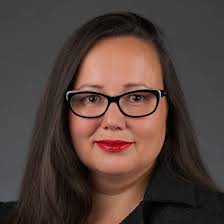A parliamentary committee has recommended making ethics and integrity training mandatory for Victoria’s public servants, and introducing measures to give whistleblowers more confidence.

The state’s Public Sector Commission should consider developing a yearly ethics training program for all public sector employers to implement, the Integrity and Oversight Committee says.
“This aligns well with the position articulated by the VPSC that it is not a regulator, and that it is the public sector employers who are ‘responsible for enforcing the mandatory codes and standards’ that the VPSC set,” the committee says in a report tabled this week.
The report looked at the education and prevention functions of four agencies: the Independent Broard-based Anti-corruption Commission (IBAC) the Victorian Information Commissioner (OVIC), the Victorian Ombudsman and the Victorian Inspectorate.
More protection for whistleblowers
IBAC needed to provide better information for whistleblowers, the committee found, and should consider developing a secure anonymous PID dropbox to reduce the risk of reprisal.
The report says whistleblowers’ fears that they may not be protected from payback are reasonable, and are one of the main reasons for not making a disclosure.
“With regard to the important role of whistleblowers in reporting and exposing wrongdoing, the Committee found that IBAC needs to provide more realistic, accessible and detailed information for them about how to make reports safely and secure,” Committee Chair Harriet Shing said.
“The Committee has also recommended that IBAC consider the development of secure dropbox technology so that anonymous reports of wrongdoing can be made with greater confidence.”
The report also recommends that IBAC publishes on its website a directory of all PID coordinators within public sector bodies and local councils, and makes available ‘clear, consistent and detailed’ information about how to make an anonymous report and how anonymity will be protected.
Better collaboration, more diversity
The committee found the oversight bodies it investigated were doing a good job in educating the public sector via inquiries, investigations and reports.
However there was an opportunity for more systematic and coordinated collaboration.
“For that reason, the Committee has recommended that IBAC, OVIC, the VI and the VO establish a corruption‑prevention and education network, guided by agreed best practice principles and drawing on the experience and expertise of other integrity leaders,” the report says.
The committee also said there could be better engagement with diverse and vulnerable communities supported by tailored resources.
The Committee makes 18 key recommendations, including:
• more in-depth integrity agency engagement with diverse and vulnerable communities in Victoria
• better tailored education and prevention resources
• more systematic and rigorous measurement by the agencies of the quality and impact of their education and prevention work
• the establishment a corruption-prevention and education network





Leave a Reply